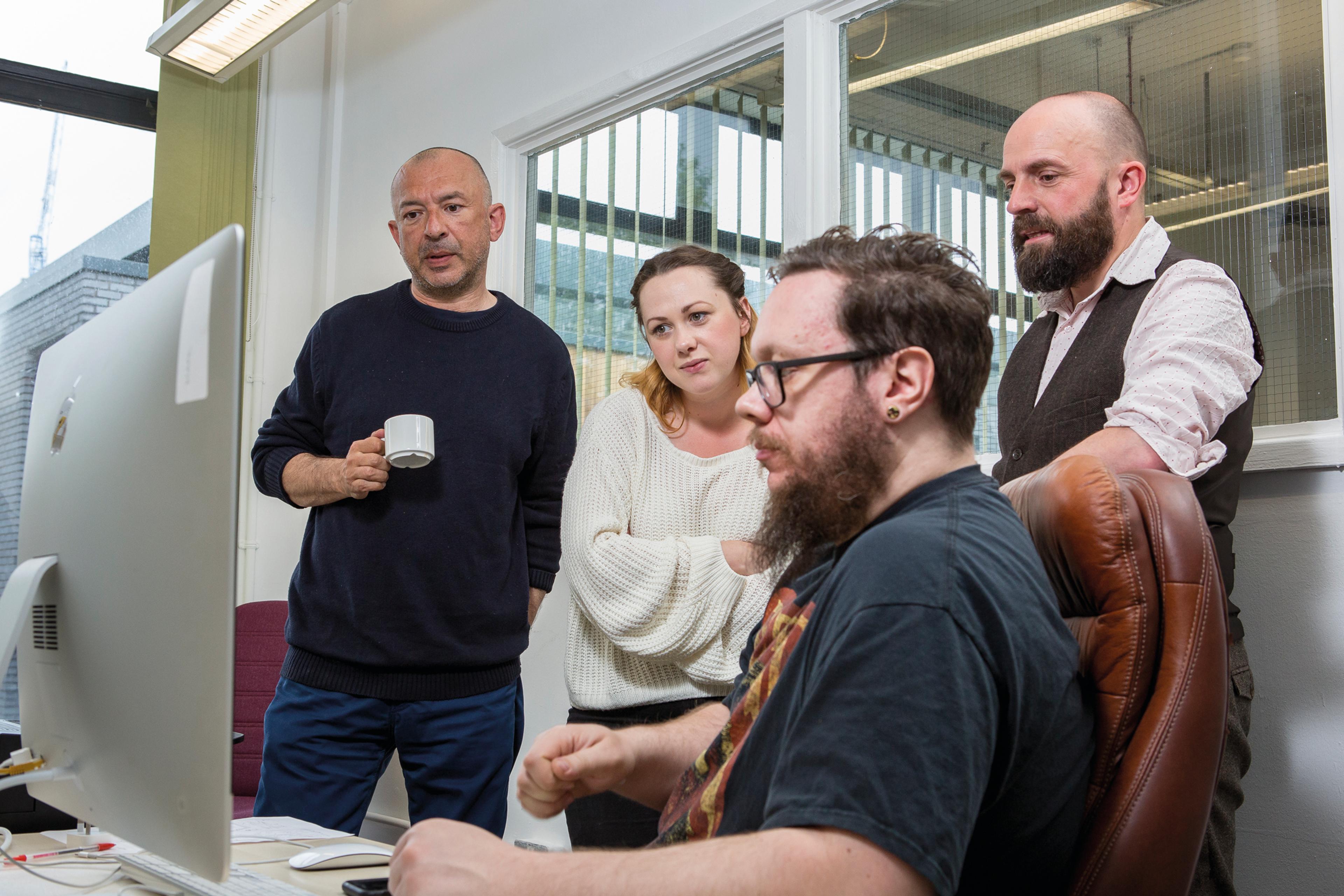Nasim Eshqi: “The voice of free women will always be written in the mountains”
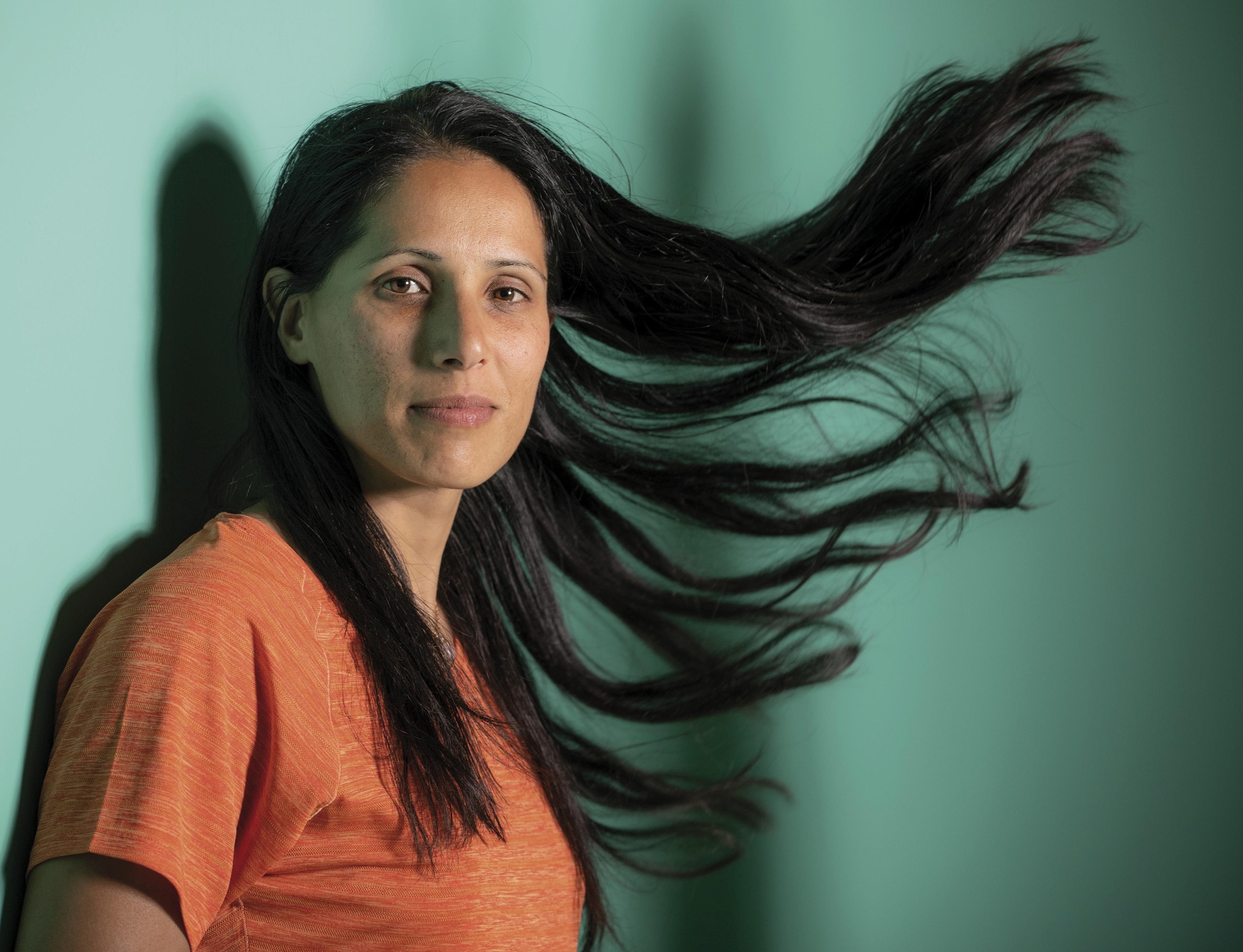
Photo by Caroline Minjolle
By Daniela Palumbo
- Street paper news
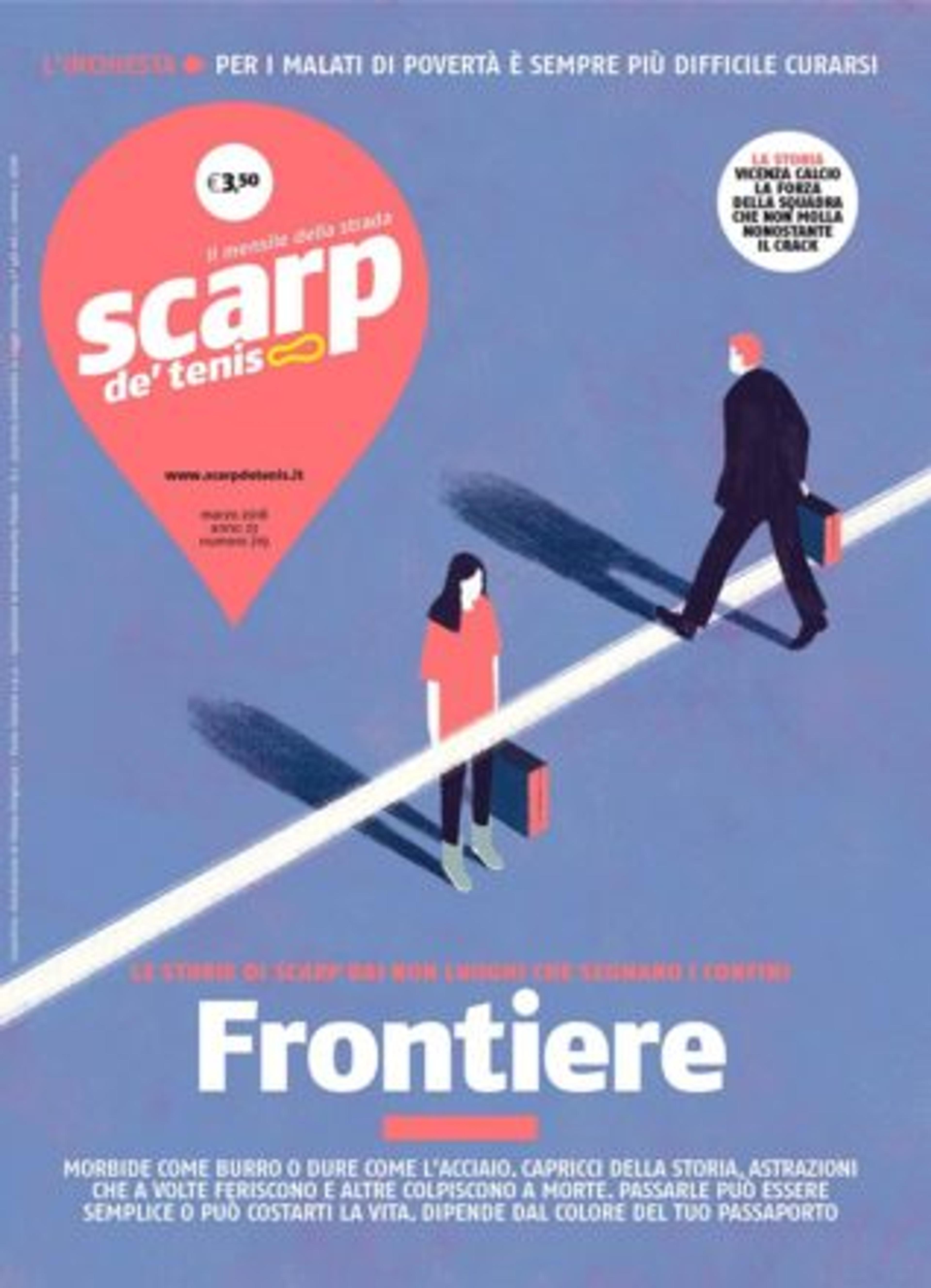
Nasim Eshqi, a free climbing athlete who has opened more than 100 new routes on Middle Eastern and European mountains, was born on 21 March 1982 in Tehran, Iran, but as she often says, “I’m a citizen of the world, and for me, my true home is in the mountains.”
Her experience as a female athlete was strongly influenced by being born in a country where women are frequently subjected to patriarchal power and misogyny. The mountains, for Eshqi, represented the opportunity for emancipation. For freedom. And even today, as a political refugee prohibited from returning to Iran, the alpinist continues her resistance against the regime, aiming to give a voice to Iranian women in the work that she does.
Each new challenge that Eshqi takes on is, of course, a physically demanding endeavour, but for her, these challenges mean so much more: they are a living testament to the brave women who continue to confront the violent regime that she was forced to flee, fighting for the right to a free life.
Eshqi recently published her autobiography in collaboration with Francesca Borghetti: Ero roccia, ora sono montagna (I was a rock, now I’m a mountain).
Scarp de’ tenis: Your resistance to the Iranian regime began when you were nine, when a ceremony of duty for girls signified a loss of freedom. Tell us about that experience.
I remember it clearly. As a child, I had a lot of energy. I found it hard having all these clothes on my body and a veil over my head. At school, I couldn’t move my legs and hands as I wanted. I couldn’t feel the air on my skin and the wind in my hair. I felt stuck in my long, grey dress that made me sweat all the time. It made me feel ugly and I hated myself and all those around me.
I wasn’t allowed to play games and sport matches with other boys. I was embarrassed and cried, but it didn’t seem to matter to anyone.
Us girls were constantly watched and supervised – at home, at school, in the street. “Don’t jump too much, don’t open your legs when you’re sat down, don’t laugh too loudly, don’t show your hair, don’t show your body, don’t do too much sport, don’t dance, don’t sing, don’t move, don’t… think.”
There were punishments for any form of resistance. I hated being a girl; I felt like a slave. I wanted to be a boy, and sometimes I’d even wear boys’ clothes to just feel a hint of the freedom that my brother had.
What is the current situation in Iran?
The government suppressed the revolution, imprisoning and executing many demonstrators. But there’s a silent revolution taking place, and this revolution is impossible to stop. It’s a revolution of awareness. The regime might be able to silence the protests, but it can’t put out the embers.
Previous generations were ignorant, believing in superstitions and seeing the leader as sanctified and holy. His words were like God’s words. They wouldn’t even touch photos of him with unclean hands for the fear of going to hell.
The new generation is educated and fearless. They’re ripping up the photos of those who created segregation and oppression, even urinating on them. They want to live freely now, not later. History shows us that no dictator lasts forever. The Islamic regime governs with force and armies, but it can’t control the minds of new generations.
How long has it been since you left Iran?
When Mahsa Amini was killed in September 2022, I was climbing in Europe. I couldn’t remain silent and I used my platform and social media to express my support to Iranian women, at which point returning would have been dangerous. I had to sacrifice all that I had in Iran: my life, my work, my family, my friends. It certainly wasn’t an easy decision.
Italy welcomed me, and then, as a recognition for my sacrifices and activism, I received the Honorary Citizen award of Naples.
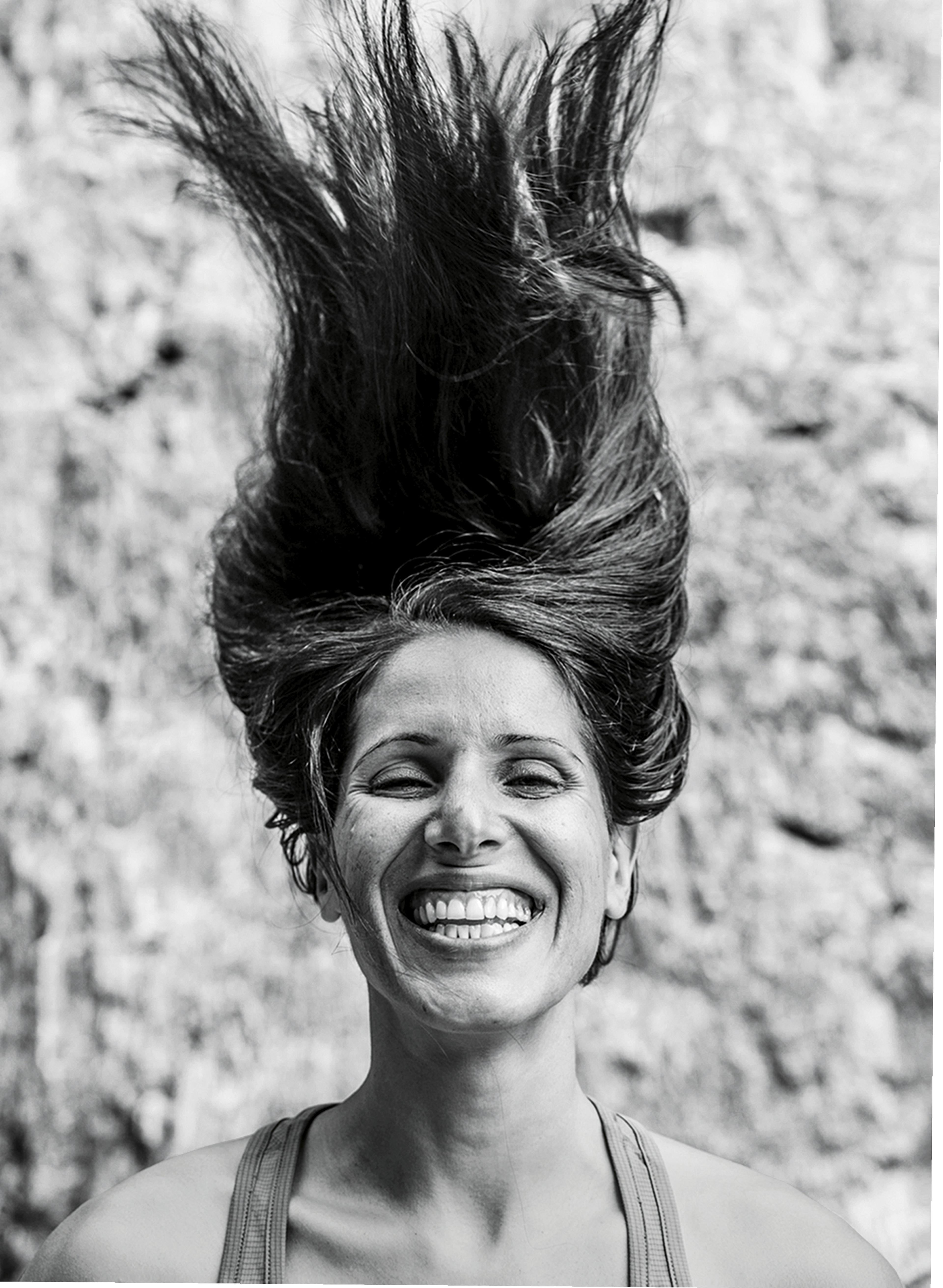
Photo by Caroline Minjolle
What do the mountains mean to you?
Freedom and equality. The freedom of being far away from oppressive societal rules. Equality, because gravity will affect me the same, whether I’m a man or woman, Black or white, Italian, Iranian or American. It pulls us down with the same force.
I started climbing by chance, really. As a national champion in kickboxing, the Islamic regime wanted me to compete on an international level promoting Islam, looking how they would have wanted me to look. They would have given me a house, plenty of money. But I refused. I didn’t want to support a regime that had oppressed me my whole life. The price to pay was the loss of my sports career. But then in the mountains, I was introduced to climbing and that became my life. Climbing was a gift for me.
You refused two sponsors because they didn’t want you to speak about human rights. How did you come to that decision?
What I understood is that they don’t want to lose Muslim clients in Qatar or Saudi Arabia. They told me that they didn’t want to risk upsetting their clients. This hypocrisy was shocking. Their discourse on female emancipation was just a façade. I won’t support brands or sponsors who don’t respect the rights that I’m fighting for.
Other sponsors contacted me to discuss collaborations, but it turned out that ultimately, they didn’t have the courage to really support me and what I stand for: human rights and freedom. For me, climbing isn’t about showing off the best equipment: it’s about solidarity and freedom.
Sport is about so much more than just a marketing opportunity: sport improves humankind. If sport doesn’t value humanity, then we’d just be robots. I’m not a robot; I’m a human being who thinks, cares and speaks. This privilege should be highlighted. As a woman who understands her own rights and abilities, I don’t need brands or sponsors who only care about selling their products. I will continue to use my voice and make progress, regardless of everything else. I won’t be silent.
Can you tell us about your project Mountains Speak?
I decided to use my knowledge and talent to defend human rights. After my posts about freedom were censored by mountaineering magazines, I decided to take a different, and indeed braver, approach.
Together with my friend, Sina Heidari, an Alpinist and guide – and also an Iranian political refugee – we launched a project aimed at amplifying the voices of oppressed women. We opened the first route in Chamonix, in France, and called it Raise Up for Human Rights, and the second route that we opened in the heart of the Dolomites, in Catinaccio, in Val di Fassa, we called Women, Life, Freedom.
We will continue this challenge, making the call for freedom and women’s rights visible in the mountains. Even if it’s ignored, this is a voice that can’t be censored. The voice of women will always be written in the mountains.
Translated from Italian
Courtesy of Scarp de’ tenis / INSP.ngo
You may also be interested in...
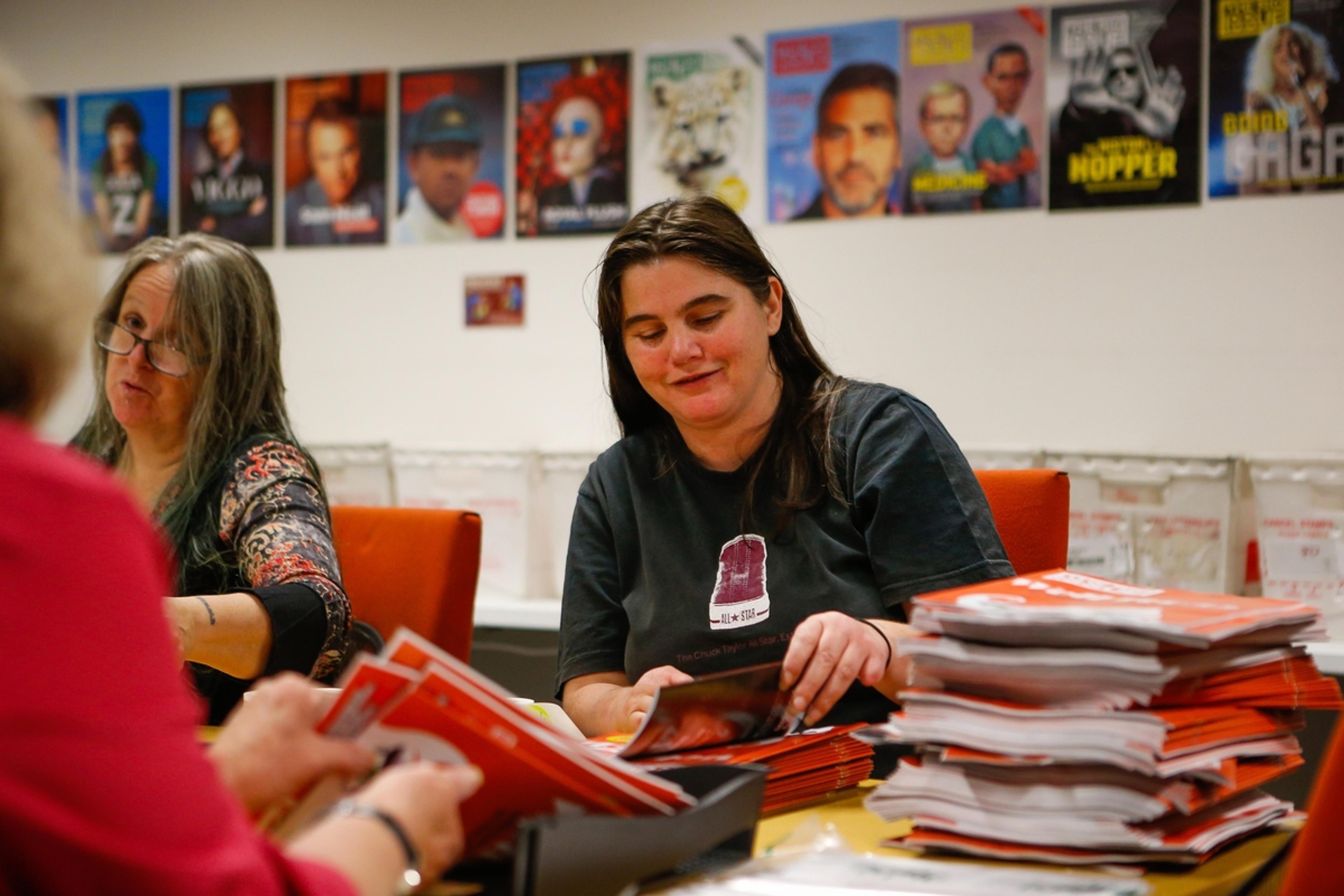
Q&A: How The Big Issue Australia is empowering women through enterprise
Read more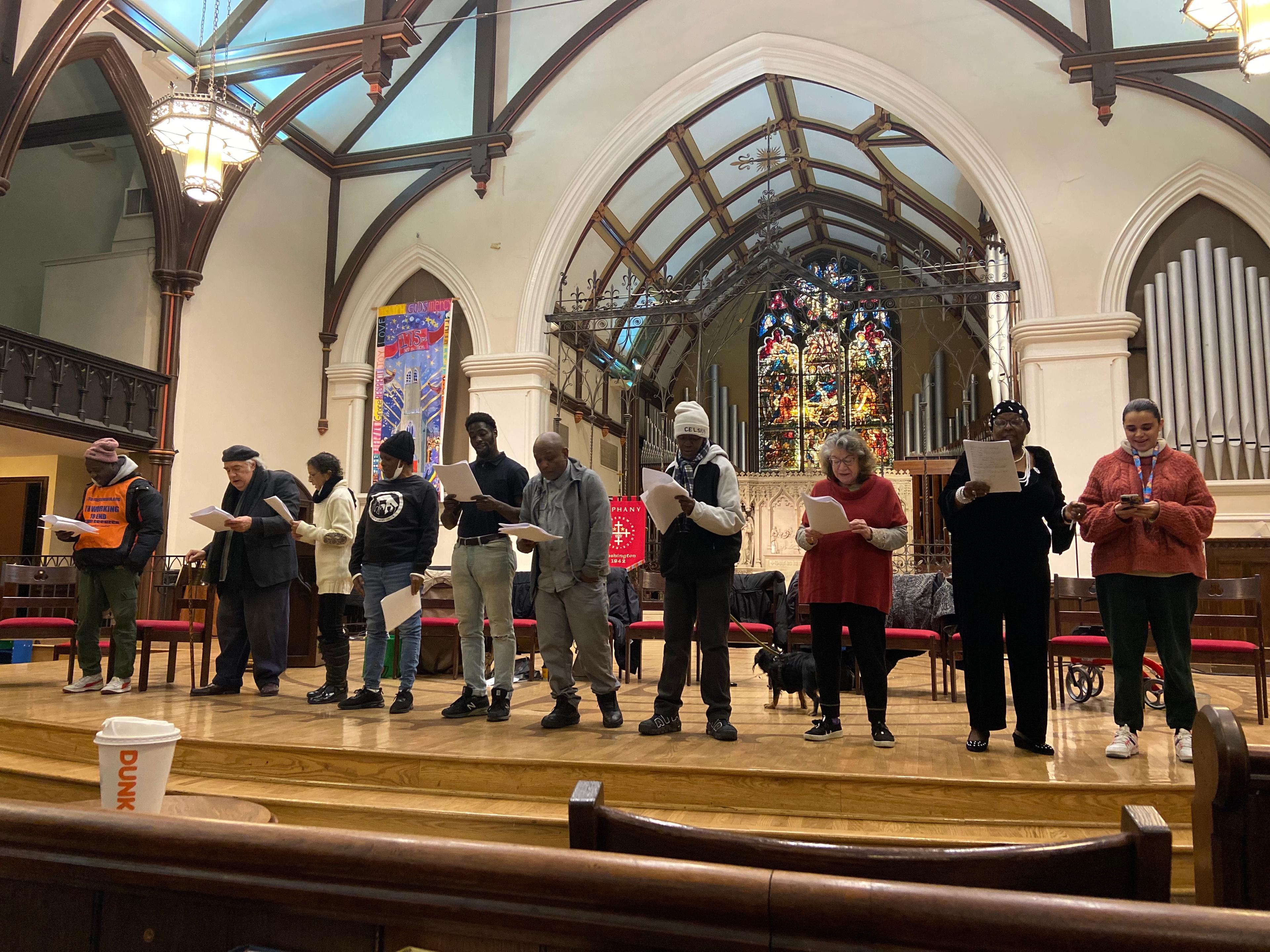
Street Sense Media vendors stage play exploring solutions to homelessness
Read more